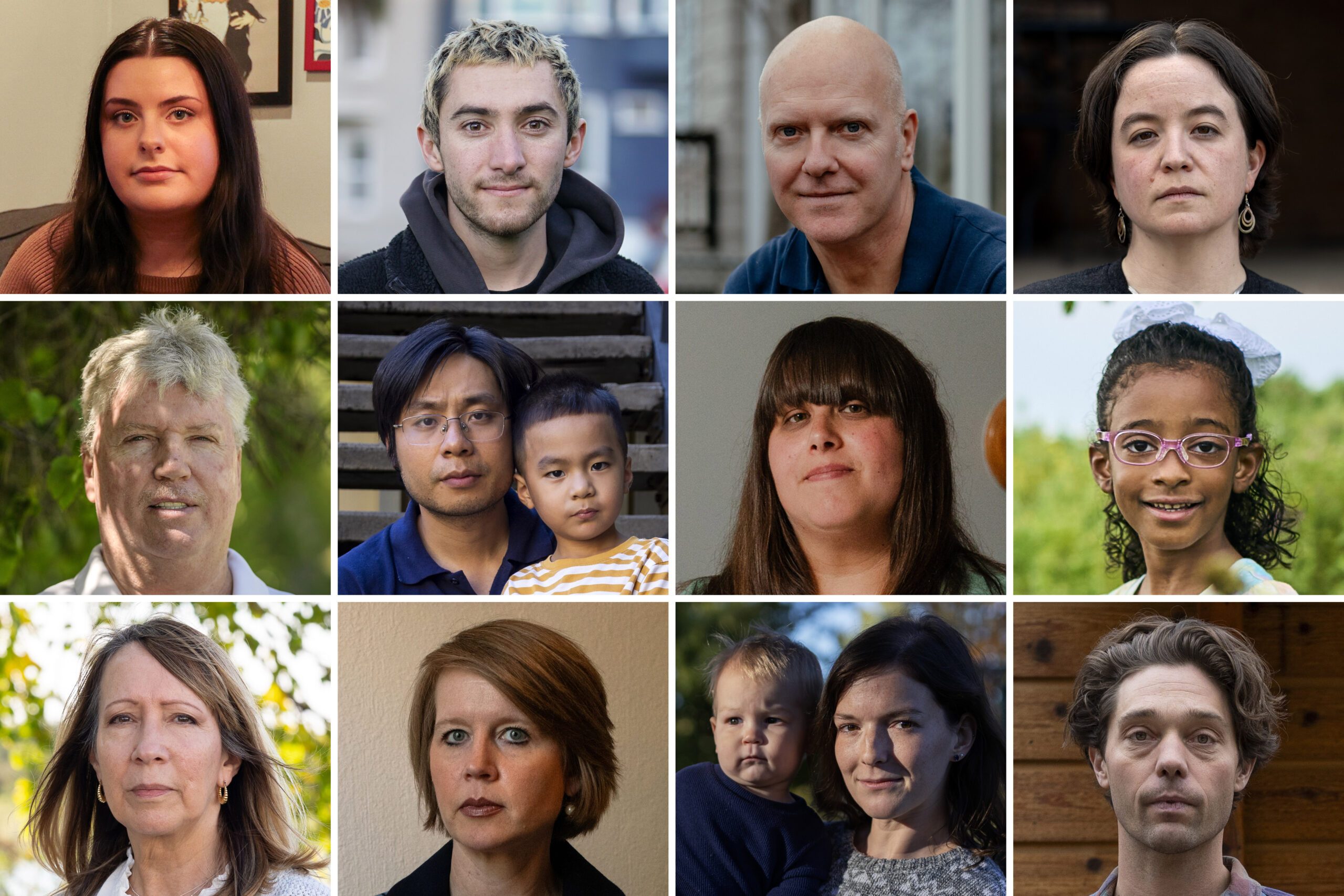Do you often feel like you’re trying so hard to sleep? As if you can’t enjoy peaceful night’s rests no matter how badly you want to or how much you worry about not getting enough sleep?
If your answer is yes, you’re not alone.
Even though sleeping is encoded in our natural state, Sleeping difficulty is a reality for a lot of people. Yet, there’s a major problem with this constant lack of quality night’s rest: It’s harmful to health and productivity.
If you lack quality sleep, you’ll struggle to present your best self in all areas of your life and it will be challenging to concentrate or to carry out tasks pretty much effectively as you would normally do if you’re properly rested.
Some people, however, don’t struggle to sleep as they mostly seem to fall asleep the moment their head hits the pillow and it’s incredibly annoying and frustrating not to be among this category of people.
The good news, however, is that you can make a shift and begin to sleep healthily and effortlessly without even taking any sleeping pills.
Instead, you can try some simple strategies that, if practiced regularly, might significantly transform your situation.
Calm your inner chatter.
According to Stevenson Shawn, learning to turn down the volume of your inner charter is a great tool to help you improve your sleep and transform your life overall.
Most people hop into bed and the next thing, they suddenly remember everything they were supposed to do in their lives.
Even though we are capable of controlling our breath and also our thoughts, we barely use this ability to our advantage.
Our ancestors had to use the fight-or-flight response which is simply the polar opposite of relaxation and sleep to fight that man-eating lion or run for the hills to take cover.
And it was perfectly fine because it’s a physiological reaction that leads to faster and shorter breathing alongside other reactions such as tensed muscles, increased heart rate, dilatation of pupils, digestion constriction, etc, due to a perceived harmful attack, event, or threat to survival.
But nowadays since we no longer have to face man-eating animals, worries over job interviews, debts, job security, relationships, health, etc, activates the same reactions dangerous animals do to our ancestors thereby robbing a lot of us of peace and even sleep.
That’s why learning to silence these worries might be what you just need to enjoy better sleep.
How to do it.
If done regularly and properly, meditation can have a significant impact on your sleeping problems.
The more frequently you meditate, breathe, or try to take control over your thoughts, the more calm and presence you’ll have in your day-to-day life.
It’s such a simple yet often mistaken to be a difficult exercise.
But as Stevenson Shawn puts it, it doesn’t require that you subscribe to any weird beliefs; you don’t have to sit cross-legged on the floor for hours, you don’t have to quit shaving, you don’t have to change your name to a symbol or a fruit, and you don’t have to drink any Kool-Aid whatsoever. But focussing on your breath is one of the simplest forms of it.
Change your food to fix your sleep.
That’s probably not what you want to hear, but here’s the reality: The food you eat can have a substantial impact on the quality of your sleep.
Guess what happens when you constantly consume bad or not-so-good stuff that inhibits the normal serotonin production and melatonin secretion which are associated with the control of feelings of well-being, happiness, and the sleep-wake cycle in your gut? Correct, you’ll struggle to sleep.
There’s almost no magical sleep button that can make you fall and stay asleep but consuming more good sleep nutrients might just be a game-changer.
If you change what you eat, you’ll efficiently change and transform the way you sleep for the better.
According to Stevenson Shawn, your belly drives your brain. Hence, poor food choices that are unfriendly to the friendly and unfriendly bacteria in your gut can lead to sleep deprivation, and eating smarter is obviously the best thing to do.
How to do it.
Avoiding things that are clinically proven to damage your gut microbiome (microorganisms living inside your gut) such as excessive chlorinated water, unfriendly processed foods, antibiotics, etc is highly recommended.
And incorporating magnesium-rich foods like green leafy veggies, seeds like pumpkin, sesame, and foods like spirulina, brazil nuts, etc, in your diet is ultimately a smart choice.
You might consider adding vitamin-D-rich foods like swordfish, salmon, tuna, etc, Calcium-rich foods like collard greens, mustard greens, sardines, etc, foods that have some amounts of melatonin in them like tart cherries, walnuts, ginger roots, etc, to your diets and they’ll certainly help the friendly flora in your gut to thrive which will, in turn, improve your sleep from the inside out.
Don’t go to bed at the same time every night.
Sleeping will be significantly harder if you often slide into your bed when you aren’t sleepy.
Even though conventional wisdom suggests we should go to sleep at the same time each night, doing so denies most people the ability to enjoy peaceful night rests.
The reality is that when you hop to bed when you aren’t really sleepy you might have trouble falling asleep which might get you frustrated and anxious about not falling asleep, which will, in turn, make it more difficult to fall asleep. That’s why you should only go to bed when you’re sleepy and not when you’re tired or when you think you should.
How to do it.
It’s easy to confuse fatigue or tiredness with sleepiness but they aren’t the same thing.
Sleepiness is an extreme desire to fall asleep whereas fatigue or tiredness is a state of extremely low energy. When you’re sleepy, you’re cozy and relaxed. your eyelids become heavy, and each time they close, they stay that way a moment longer.
Don’t you think it will be easier to fall and even stay asleep when you are in such a situation? Well, I also think so.
Watch your position.
A lot of people experience difficulty sleeping at night. That might surprisingly be because they’re sleeping in a position that compromises their ability to enjoy great periods of sleep.
People mostly assume that just lying their butt anyhow will magically make them fall and stay asleep. But while this works for a lot of people, it’s not the right approach.
What you should do instead is to stick to sleeping positions or styles that tend to gravitate towards you.
How to do it.
There are three most popular sleeping positions:
#1. Lying on the back. While this might be the preferred sleeping position for a lot of people, so many are getting it all wrong. Hence, to get the most of this position, avoid using huge pillows that might cause you back pains, neck pains, headaches, etc since they mess up the natural curve of your spine. And avoid using worn-out mattresses that sink in so much and affect your spine’s natural curve.
#2. Lying on the belly. Often referred to as infants’ style. If you naturally enjoy this position, you might consider lifting one knee to open your hips and lift pressure off your spine as opposed to keeping your leg straight. Try losing your pillow or ditch it completely to avoid unwanted neck problems. You might also want to use your pillow for creating a healthier and comfortable position by placing it either beneath your belly to ease stress off your spine or on the same spot you’ve lifted your leg.
#3. Lying on the side. Most people enjoy this position and if you’re one of them, you should consider leaning your shoulder slightly forward, making sure that your head isn’t popped too high on pillows, and using soft pillows if you have back pain.
Since there’s no universal sleeping position, you are better off experimenting with different styles until you find one that you’re most comfortable with and stick to it.
And if you already know which position you enjoy most, do well to avoid the above-mentioned counterproductive habits and adopt the better ones. Yes, it won’t be easy to change your sleep position habits but with time, it’ll become second nature.
Never worry over lack of sleep in bed.
One of the main reasons why a lot of people have prolonged insomnia is that they worry so much over lack of sleep.
Even though it’s natural to worry about not sleeping because we all know the effect sleep deprivation has on our lives, worrying over lack of sleep especially when you lie in bed only makes it more difficult for you to sleep. In fact, this habit has proven to constitute a larger risk of prolonged insomnia than habits like taking a nap at noon. Hence, one should steer clear of this habit.
How to do it.
Whenever you catch yourself worrying over lack of sleep in bed, get out of bed and find something until you no longer worry and eventually feel sleepy.
Worrying too much about lack of sleep should be dealt with as soon as possible to prevent one’s sleeping difficulty from becoming entrenched.
—
This post was previously published on Medium.
***
You Might Also Like These From The Good Men Project
 Compliments Men Want to Hear More Often
Compliments Men Want to Hear More Often  Relationships Aren’t Easy, But They’re Worth It
Relationships Aren’t Easy, But They’re Worth It  The One Thing Men Want More Than Sex
The One Thing Men Want More Than Sex  ..A Man’s Kiss Tells You Everything
..A Man’s Kiss Tells You Everything Join The Good Men Project as a Premium Member today.
All Premium Members get to view The Good Men Project with NO ADS.
A $50 annual membership gives you an all access pass. You can be a part of every call, group, class and community.
A $25 annual membership gives you access to one class, one Social Interest group and our online communities.
A $12 annual membership gives you access to our Friday calls with the publisher, our online community.
Register New Account
Log in if you wish to renew an existing subscription.
Username
First Name
Last Name
Password
Password Again
Choose your subscription level
- Yearly - $50.00 - 1 Year
- Monthly - $6.99 - 1 Month
Credit / Debit Card PayPal Choose Your Payment Method
Auto Renew
Subscribe to The Good Men Project Daily Newsletter By completing this registration form, you are also agreeing to our Terms of Service which can be found here.Need more info? A complete list of benefits is here.
—
Photo credit: Lux Graves on Unsplash
The post 5 Ways To Enjoy a Solid Night’s Rest Without Trying Too Hard appeared first on The Good Men Project.
Original Article










